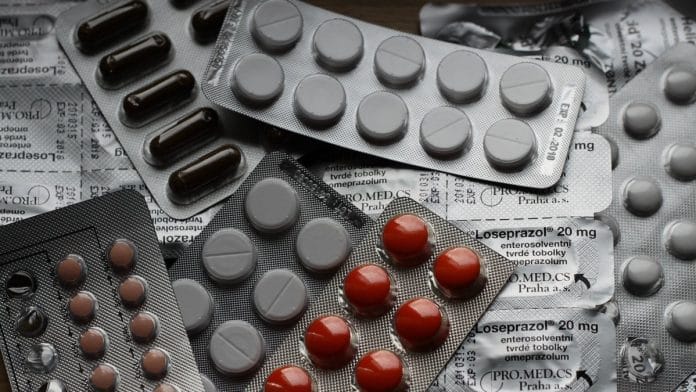New Delhi: The hoarding and black marketing of remdesivir and tocilizumab — the essential, experimental drugs for the treatment of Covid19 — raises concerns about the distribution of Covid-19 vaccine, a top government official has told drugmakers.
In a virtual meeting Friday led by P.D. Vaghela, secretary, Department of Pharmaceuticals (DoP) to “review the implementation” of marketing ethics and code of conduct, the topic of hoarding and leakages in the drug distribution system dominated the discussion.
“Picking the latest instance of black marketing of remdesivir and tocilizumab, the government officials have repeatedly asked the industry on how we can solve the issue of black marketing,” said an industry official representing one of the top pharmaceutical associations in India.
“Vaghela emphasised that the latest event has highlighted the flaws in our distribution system which could be harmful for the fool proof distribution of Covid-19 vaccine in the future and needs to be fixed now,” added the official who requested to stay anonymous.
The DoP is the apex body for forming policies related to drugs and medical devices in India, and falls under the Ministry of Chemicals and Fertilisers.
Both DoP Secretary Vaghela and Joint Secretary Navdeep Rinwa, in the virtual meeting, advised the industry to “name and shame” the companies or individuals involved in the illegal trade. “They have also asked the industry to send a list of suggestions to prevent black marketing, if any,” said the official quoted above.
They two DoP officials also suggested that trade bodies submit a consolidated report on the progress of implementation of the Uniform Code of Pharmaceuticals Marketing Practices (UCPMP) — a voluntary code issued by the DoP that is related to marketing practices for pharmaceutical companies and the medical devices industry.
In another meeting of the DoP Friday to discuss other industry issues, Vaghela asked the All India Organisation of Chemists and Druggists (AIOCD) — the largest association that represents 8.5 lakh Indian pharmacies, drug distributors & stockists — to ensure fair trade practice.
“We have assured government that none of our member had been involved in the black marketing racket. In future also, if any of our member is found (to be a) culprit or part of such illegal activity, we will name and shame (them) publicly,” Rajiv Singhal, secretary general, AIOCD told ThePrint.
Also read: Modi govt eyes QR, barcode to plug leak in supply chain of Covid drugs, curb black marketing
Latest discussions on implementation of code of conduct
In December, DoP had warned drugmakers to strictly adhere to rules while marketing medicines and medical devices, after a report revealed glaring instances of pharma companies bribing doctors.
Later, in January, PM Modi directed pharmaceutical companies to strictly adhere to marketing ethics.
In the latest review meeting with all drugmaker associations and lobbies of medical device manufacturers — such as Indian Drug Manufacturers’ Association (IDMA), Indian Pharmaceutical Alliances (IPA) and Organisation of Pharmaceutical Producers of India (OPPI), Federation of Indian Chambers of Commerce and Industry (FICCI) and Confederation of Indian Industry (CII) — the DoP asked the industry to submit a report of complaints filed on a quarterly basis.
“The secretary has instructed that even if there are zero complaints, the report should be submitted to the National Pharmaceutical Pricing Authority (NPPA). He has also instructed that all associations must upload the list of members who represent their committees on code compliance,” said another official and pharma industry veteran who was part of the meeting.
“Also, all lobbies must upload the procedure of handling the complaints received (against the drug makers for not adhering ethical marketing practices),” he said.
UCPMP & why govt is reviewing its implementation
The marketing code, which was released in 2014, curbs gifting and sampling of products to healthcare professionals. The code states that each sample pack given to a doctor should be limited to the prescribed dosage for three patients.
The UCPMP also says “no gifts, pecuniary advantages or benefits in kind may be supplied, offered or promised to persons qualified to prescribe or supply drugs, by a pharmaceutical company or any of its agents i.e. distributors, wholesalers, retailers etc”.
The government started taking stock of its implementation after a report published by an NGO called Support for Advocacy and Training to Health (SATHI) suggested that medical representatives (MRs) — the people who pitch products directly to doctors — were bribing doctors to ensure their products were being prescribed.
The report said MRs had paid for the “purchase of cars, international conferences, online shopping vouchers and even female companionship for doctors”.
It further states that the ethics and values which were followed in the past were “getting bypassed” and often these codes are “not adhered to achieve business”.
Also read: Parliamentary panel flags black-marketing of remdesivir, govt says ‘taking action’






